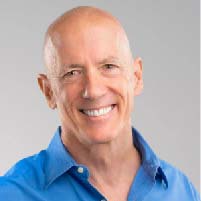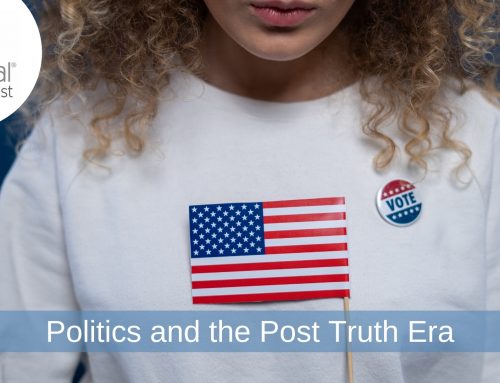Did you know you have a magic sex number? It’s how much sex you’d prefer to have if you were with your ideal partner, says today’s guest, marriage and family therapist Steven Ing. People can have vastly different numbers, of course — from 4 times a day to once a month to never. But what happens if your partner’s number is starkly different from your own? Tune into today’s podcast to have an open discussion on how to have a sexually-healthy relationship. Click on the player below to listen now!
SUBSCRIBE & REVIEW
Guest information for ‘Magic Sex Number’ Podcast Episode

Steven Ing, MFT had a seriously messed up childhood. Like, mobster-father-shot-to-death-by-police messed up. So what did he do with this experience? He set out on a lifelong quest to study and better understand human behavior — why good people do bad things. He channeled this research into a Marriage & Family Therapy career with more than 30 years of clinical experience and 20 years of experience in forensic psychotherapy.
As a leading expert, author and public speaker on all matters related to sexuality and relationships, Steven is fiercely passionate about his life’s mission to shine a light on how society hasn’t even begun to really think and rationally talk about human sexuality.
Steven is a powerful ally to the LGBTQ community and a regular contributor to LGBTQ outlets such as The Rage Monthly and Adelante Magazine. His work can also be found in HuffPost, SheKnows.com and The Advocate. He was recently on the Betches SUP Podcast and is a TEDx Talk presenter, educating the masses on “Your Magic Sex Number”.
Computer Generated Transcript for ‘Magic Sex Number’ Episode
Editor’s Note: Please be mindful that this transcript has been computer generated and therefore may contain inaccuracies and grammar errors. Thank you.
Announcer: You’re listening to the Psych Central Podcast, where guest experts in the field of psychology and mental health share thought-provoking information using plain, everyday language. Here’s your host, Gabe Howard.
Gabe Howard: Welcome to this week’s episode of the Psych Central Podcast. Calling into the show today, we have Steven Ing, who had a seriously messed up childhood. He channeled this into a marriage and family therapy career with more than 30 years of clinical experience and 20 years of experience in forensic psychotherapy. He’s a leading expert, columnist, author and public speaker, all on matters related to sexuality and relationships. He’s at TEDx Talks presenter, educating the masses on your magic sex number. Steve, welcome to the show.
Steven Ing, MFT: Hi, Gabe. It’s great to be with you today.
Gabe Howard: Steve, I first want to say that I absolutely love your bio. I think it’s important to just own things. And I like that you had a seriously messed up childhood because in many ways I feel like I had a seriously messed up childhood. And I believe a lot of our listeners are looking back on their childhood and they’re feeling the same way. And, you know, sometimes our guests, you know, they really want to tout their professional accolades, but they don’t want to tout their human experiences. So first off, kudos to you for your honesty.
Steven Ing, MFT: Oh, thanks a lot. I just think that, you know, for me, such a huge part of my motivation to help people because I know what it feels like to be in those uncomfortable family situations.
Gabe Howard: It makes perfect sense to me, and that vulnerability, I think is really important, giving that your subject matter is sexuality because people are often embarrassed to discuss sex and sexuality anyway. Now let’s talk about your TED Talk. The magic sex number. What is that all about?
Steven Ing, MFT: Basically, the idea is that we all have specific needs that we’re pretty much hardwired to have and that they aren’t subject to moral suasion or to personal appeal. Like, for example, the number of hours sleep you need to feel refreshed and also the number of calories you need per day to feel satiated. We don’t really talk about sex that way, but everyone I’ve ever interviewed and I mean, thousands of people had an answer to that question. Ideally, if you could be in your perfect relationship, that was perfect in every way. How often, ideally, would you like to have sex? And some people respond with the number at one end of the continuum and other people respond with a very different number. And that represents a range of humanity. We’re all normal and we’re all different. So we just don’t talk about this very much. We sort of presume, I think, in an egocentric way that when we fall in love with somebody, they will want us pretty much exactly the way we want them and with the frequency we want them. And that just isn’t true because of the range from one person to another can be quite serious.
Gabe Howard: When I think about a magic sex number, the first thing that I think is how am I supposed to figure mine out?
Steven Ing, MFT: Yeah, that’s. That is really tricky. And it’s actually trickier than I even thought it might be because there’s a lot of cultural and moral interference with getting an accurate assessment. If people have an idea that there’s a right number and that number is way too low or way too high, they tend to skew their number to what they think is more acceptable or more normal. And in the same way, a lot of people are preset to self-deception because they end up coming up with a number that mentally is actually the number they’d be willing to settle for. And that’s a very different number than the number that they ideally would like to have. So for me, the question is one of sustainability. If we’re serious about getting all of our sexual needs met in one monogamous relationship, then we need to make sure that that sexual relationship is at least a fighting chance of being sustainable. And if we don’t do that, we really haven’t done our due diligence.
Gabe Howard: One of the things that I’m thinking about is when it comes right down to it. How important is our magic sex number? Because it sort of sounds like you’re making sex the end all be all of a successful relationship. Aren’t there other things more important like compatibility and values? So how important is a magic sex number?
Steven Ing, MFT: It’s a little bit like arguing, though, which organ is more important, the heart or the kidneys, because the truth is we need it all to work together for us to survive and have a happy life. And then the same way, if I have the perfect relationship, perfect in every way. But there is a significant problem. It could be something like my mate decides to engage in compulsive gambling. That alone could destroy an otherwise good relationship. So if I’m talking about sex, most of us, we don’t talk about it too much, but we have an idea in the back of our mind of what our future sex life could be like. But we don’t imagine something like what happened to one of my clients when his wife came up to him after seven years of marriage and they had two children by that time. They were a couple in their thirties, and she announced to him that she would not be having sex with him anymore. And he was shocked and didn’t know what to do about this. And for the next 40 years, they did not have sex and it ended up disastrously for both of them. But he never, ever thought that he would be in that situation. And most of us don’t. But we don’t think it through like, well, what would I do? And well, what are my sexual needs? Because if if we think about managing our sexuality intelligently and we have an idea of our magic sex number. You know, for some people, it’ll be three times a week. For some people, it’ll be once a week or less. But whatever that number is, it’s what you need to feel comfortable. Otherwise, you’re facing a catastrophic marital failure where you end up getting so frustrated that you either have an affair or get a divorce or whatever that is. We’d all like to avoid that.
Gabe Howard: The first thing I thought of as you were telling that story is 40 years of no sex. That doesn’t seem like a marriage to me. That seems like a friendship. How did they survive? Forty years in a sexless marriage?
Steven Ing, MFT: For her, her discomfort with the idea of having sex with him was not replaced with anything other than a deep dove into alcoholism. So she relied on booze to get through the rest of her life for him because of his religious upbringing. Divorce was an unacceptable option. And I live in Nevada where prostitution is legal. And he never availed himself of the services of a legal prostitute, nor did he ever have an affair. Instead, what he did is he spent the next 40 years trying desperately to take care of his sexual needs simply through masturbation. And of course, that was not a successful effort because our sexual needs are far more complex and diverse than just orgasm alone. So even if I were, let’s say, masturbating as frequently as I wanted an orgasm, that’s not going to take care of my needs for companionship, conversation, humor and play. So it just doesn’t work.
Gabe Howard: I’m starting to think about our magic sex number and I’m thinking, OK, clearly if one person is zero and you’re at one, that’s too big of a gap. But maybe if somebody was at 10 and you were at 12, that might be a gap that you could work with. All of this to say, how big of a difference between the numbers becomes significant or becomes a dealbreaker? Now, I know in the story that you just told, apparently there was no dealbreaker. But myself, and I believe many of our listeners, would probably not be willing to stay in a marriage that was sexless for 40 years. And even in that story, it did seem like the outcome was disastrous for both parties involved.
Steven Ing, MFT: So typically, a magic sex number wouldn’t be a number like 7. It would be a number like oh, from 6 to 8. And that way there’s a little bit of give and take or leeway. And what we’re talking about, of course, I hasten to say this. We’re talking about the norm. We’re not talking about, oh, if my mate is ill or has gone through a deep tragedy and I need to be there for her emotionally or she is away on a trip or something like that. We’re just talking about the day to day typical marital situation. You know, clearly if somebody says 8 and somebody else says 11, there’s quite a bit of room to work with that. But I like your example of if one of them says once a week, that’s really comfortable for me. And the other one says zero and I’m looking at a lifetime of sexless marriage, that’s really not going to work. But actually, zero is the preferred number for a definite percentage of the population. There are asexual people in our population who quite sincerely want to have companionship and they want to have marriage and all the benefits of the partnership, but they’re completely disinterested in sex. And for them, an ideal number is zero makes perfect sense. At the top end, I have had people who are happily married because they found someone who is just like them and the number, their number was four times per day.
Gabe Howard: Wow.
Steven Ing, MFT: and then they shared that number in common.
Gabe Howard: I am stunned and it.
Steven Ing, MFT: Well, it’s.
Gabe Howard: Is this atypical? I mean, this would have to be atypical.
Steven Ing, MFT: I think what we need to all remember is that human sexuality falls in virtually every aspect on a continuum. I think that’s what we’re learning more and more about sexual diversity as we as a culture get more comfortable talking about sexuality. So the old binary of hetero versus homo even that has Kinsey pointed out back in the 50s occurs on a continuum. Some of us are more or less heterosexual than the person standing next to us. And when it comes to a magic sex number, if our listeners could imagine that a bell shaped curve that includes all of humanity and that one end, let’s say the left hand side of the curve would be the asexual who prefer a number like zero. And then on the far right would be somebody who, like my client, has an extremely surprisingly high number and they’ll be in that little shaped curve. The vast majority of us somewhere in the middle.
Gabe Howard: So once the two numbers have been established and they’ve sort of figure out where they are now, the partners have to negotiate and they have to discuss sex in a meaningful way. But that’s not the easiest thing for couples to do, especially if they feel that they’re on opposite ends of the spectrum. Many couples feel that if they don’t immediately give the identical answer, there is a sex problem. And whenever there’s a sex problem, people tend to shut down and get defensive. Why is it so hard for couples to discuss sex in a meaningful way?
Steven Ing, MFT: I think part of that is because nobody around us is having this kind of a conversation. So when we’re raised in our family, our mom and dad at the breakfast table, don’t typically read a newspaper story and then start talking about sexual preferences and ideal numbers. We never hear people talking about this kind of thing in church. When we talk the little that we do about sexuality and then even in sex ed classes, the focus is mostly on anatomy and physiology, how pregnancy occurs and how to avoid t.i.’s. And it really isn’t presenting sexuality in a human context relationship. So what I like to do with my clients, I like to encourage them to think about going on a date and eventually getting to some point in the conversation. And it could be a first date for the advanced or it could be something like the third or the tenth date. But eventually most of us want to ask the other person we’re interested in, so what are you looking for in your life? Which leads to talks about being single or getting into a committed relationship. And from there it’s really easy to ask. So what do you visualize your future sex life looking like? I know that may seem intimidating to some people, but if you’re seriously thinking about partnering up in a committed long term relationship and the person you’re dating can’t talk about sexuality in a safe way, that alone for me would be a dealbreaker. Because we need to talk about this before we commit. It’s like talking about finances before we jump into a business partnership. If my prospective business partner were very shy about talking about money, I think go look for another partner. And when we’re talking about magic sex numbers, I think what I would encourage people to do in that fantasy version of a date is to introduce the topic the way I said.
Steven Ing, MFT: And then looking at the uncomfortable expression on the other person’s face to say, tell you what? Let’s each write our number down and then we can turn our napkins over at the same time and share our numbers with each other. Because you’re quite right. You know, a lot of us approach relationships from a position of neediness or loneliness. And so if she asks me what my magic sex number is, I might be very tempted to ask her, well, what’s yours? I’m going to try to guess what it is I think her ideal number is going to be, and instead just to write down what we honestly think is our true number. Flip those little cocktail napkins over and then kind of blink at each other because the numbers are going to be closer or they’re going to be far. These things don’t fall into place automatically or without some effort at laying the foundation. So finding out, you know, we all know those stories of people who got married only to find out after long after the wedding that their partner wasn’t really of the same sexual orientation they were. And part of that was failing to have the appropriate conversations and making it safe for people to disclose who they really are. And some of that’s due to family pressure, some of it’s due to the crazy personal pressure we put on ourselves and for others it’s because of our religious upbringing. But even if we’re needy and lonely, we have to admit it’s not going to do any of us any favors to get together with someone whose appetite for sex is so much different from our own.
Gabe Howard: We’re going to step away and we’ll be right back after these messages.
Sponsor Message: Hey folks, Gabe here. I host another podcast for Psych Central. It’s called Not Crazy. He hosts Not Crazy with me, Jackie Zimmerman, and it is all about navigating our lives with mental illness and mental health concerns. Listen now at Psych Central.com/NotCrazy or on your favorite podcast player.
Sponsor Message: This episode is sponsored by BetterHelp.com. Secure, convenient, and affordable online counseling. Our counselors are licensed, accredited professionals. Anything you share is confidential. Schedule secure video or phone sessions, plus chat and text with your therapist whenever you feel it’s needed. A month of online therapy often costs less than a single traditional face to face session. Go to BetterHelp.com/PsychCentral and experience seven days of free therapy to see if online counseling is right for you. BetterHelp.com/PsychCentral.
Gabe Howard: We’re back discussing your magic sex number with marriage and family therapist Steven Ing. One of the things that always confuses me about our society is that when it comes to marriage, sex is so important that you must only have sex with your marital partner. However, sex is so insignificant and not important that you should not make sex the basis of said marriage. It’s kind of weird, right? It’s.
Steven Ing, MFT: That’s very weird.
Gabe Howard: It’s a bit, but
Steven Ing, MFT: That’s very weird.
Gabe Howard: But, this is our system.
Steven Ing, MFT: I think intuitively, I think you’re right. I think we know that it shouldn’t be the basis because that kind of reduces us to just a sexual object alone. But to deny its importance, I think, is really to ignore a major dimension of our experience. So obviously, I’m going to have some spiritual needs and some social needs and some financial and physical needs. But it would be odd if we if we talked about sexuality as if it were the one dimension of the human experience that had no needs related to it, because that’s just not true of any other part of our lives.
Gabe Howard: When it comes to understanding sexuality and relationships, I am obviously an amateur compared to you being an expert. And that’s one of the reasons that I want to pose this question to you from. From my point of view, as goes sex as goes the quality of the marriage. How do you as an expert feel about that statement?
Steven Ing, MFT: I have to agree with it. I’ve never said that sentence, but I think that the sex life is definitely a barometer, if you will, about the health of the relationship. And that goes deeper than we might think at first blush, because even if two people are having sex daily and they both agree that that’s the right number, but one is very present and the other one is emotionally checked out. That, too, is part of their sex life. Right. So that’s a real problem because sex itself is a metaphor for how much acceptance, affirmation, approval and affection. I’m going to get in that relationship. In fact, they’re so lined up that a lot of people substitute sex for intimacy and for intimate relationships because it’s so closely mimics those emotional needs that we’re trying to get met. But once you’ve been with a person for years and years and you can tell that they’re just going through the motions and they’re not really present with you. Like one of my clients years ago, she said, well, I don’t know what he’s thinking, but I know it sure as heck isn’t about me. And she told me that with sort of an acceptance of her fate. She was an older woman, but she was accepting yet miserable, if that makes any sense.
Gabe Howard: It does.
Steven Ing, MFT: Yeah, OK. She wasn’t comfortable with that answer. So when we when we talk about sex, you know, I have to add a P.S. or some kind of a note here, because usually when we talk about sexuality in a relationship, we’re talking about intercourse. And I would argue that that is only a small part of the sexual dimension of intimacy. And I think our sexual needs are far more and diverse than that. And they include things like simply feeling safe. You know, if we don’t have our needs for sexual safety net in a relationship, it’s a disaster because everything follows from that. And if we don’t have our needs for appropriate sexual information met in a relationship, we’re not going to be able to make very intelligent choices in that relationship. So our needs are pretty diverse. And again, a problem in our culture and it’s a major, major hole in our education of the young. How am I supposed to manage my sexuality intelligently when I have no idea what my sexual needs are? In our culture, we don’t really do this. It’s a very squeamish and uncomfortable subject for most people. It’s a question. It’s not like we’re foolish or we’re stupid. It’s just that we’re uninformed and we don’t have the vocabulary. There was a philosopher, one of my favorites from the 20th century named Ludwig Wittgenstein, and he said something that really applies here. He said, if I don’t have the words to describe a thing, then I really don’t understand that thing. And I think that is more true of sexuality than anything else.
Gabe Howard: It’s very fascinating to me that anybody would be uncomfortable discussing sexuality, considering how it permeates our culture, we use sexuality to sell gum, but we’re uncomfortable discussing what makes us happy sexually, even in the context of committed relationships, in the context of marriage. We’re uncomfortable about this, but there will absolutely be a woman in a bathing suit holding gum, telling you how, if your breath smells good, your chances of a sexual encounter increase.
Steven Ing, MFT: Right.
Gabe Howard: But talking one on one with a potential sex partner becomes very embarrassing. And it’s fascinating. It’s absolutely fascinating to me. And I imagine, again, as somebody who has studied this for 30 years, it’s got to be fascinating to you as well.
Steven Ing, MFT: Well, one of the things I’ve been just delighted to do is in my last public speaking event was with the American Advertising Federation, and they were just a great audience and very aware of the phenomenon you were just talking about in terms of selling gum. And that’s we reviewed advertising history. You see that advertisements involving sexuality are almost always about titillation. The pretty girl, the arousing moment, the suggestive comments or look. But when you get past titillation and I think titillation is great and I’m not against titillation, I think it’s an important part of our sexuality. But until we actually cross over to including the conversation on intimacy and what it would take for us to feel safe with each other, I don’t think we really understand sexuality. And I think it may be because we’re just simply not ready for it culturally. But I think as individuals, again, the people listening to this, they can get there. It’s just embracing the idea that I need to and want to learn to manage my sexuality intelligently, whether I’m committed to a monogamous lifestyle or I’m really into casual hookups or something in between. I want to do it intelligently and then to begin having conversations with intelligent people who are respectful and can listen to you without judging you. I think that’s really how we get smarter with each other is having these kinds of conversations like the one you and I are having, Gabe.
Gabe Howard: Steven, I really appreciate you talking to me and the audience about this, and I hope that more people will have conversations with their spouses and their partners about the type of sex that makes them happy and get all on the same page, because I think ultimately sex is great, right? It’s something that we biologically crave. It’s something that we’re all doing. And I feel that that can only be enhanced by having these conversations with the people that we’re having sex with.
Steven Ing, MFT: Yeah. Or the people were thinking about making lifelong commitments to. And I think it’s such an important conversation to have to accept that none of us are really very good at it. When we get started and to be patient with yourself, to let yourself take a little time, even if it’s just sharing a magazine or newspaper article or paragraph with someone and discussing that. So it’s not really about you and the here and now, but it’s about someone else just kind of getting your brain going into working on that I think would be enormously profitable for everybody out there who is a sexual being. Oh yeah, that’s everybody.
Gabe Howard: Steve, thank you so much for being on the show. Where can audience members find you? What’s your Web site?
Steven Ing, MFT: Super easy if they can spell my last name, I N G. It’s StevenIng.com. So if they just go to Steven with a V, StevenIng.com, they will find out more about me than they ever wish they knew.
Gabe Howard: Steve, thank you so much for your candid talk about sex and sexuality, it’s necessary and it’s needed, and I appreciate having you on the show. And listen up, everybody. I have a personal favor to ask all of you. Wherever you downloaded this podcast, rank us. Use your words and tell people why to tune in. It absolutely helps. Share us on social media. Email us to your friends. And we have a private Facebook group. Just go to PsychCentral.com/FBShow and sign up. You can suggest topics and get show details before everybody else. And finally, remember, you can get one week of free, convenient, affordable, private online counseling anytime, anywhere simply by visiting you. BetterHelp.com/PsychCentral. We’ll see everyone next week.
Announcer: You’ve been listening to The Psych Central Podcast. Want your audience to be wowed at your next event? Feature an appearance and LIVE RECORDING of the Psych Central Podcast right from your stage! For more details, or to book an event, please email us at show@psychcentral.com. Previous episodes can be found at PsychCentral.com/Show or on your favorite podcast player. Psych Central is the internet’s oldest and largest independent mental health website run by mental health professionals. Overseen by Dr. John Grohol, Psych Central offers trusted resources and quizzes to help answer your questions about mental health, personality, psychotherapy, and more. Please visit us today at PsychCentral.com. To learn more about our host, Gabe Howard, please visit his website at gabehoward.com. Thank you for listening and please share with your friends, family, and followers.
This article originally appeared on Psych Central as Podcast: How Much Sex Is Psychologically Healthy?













